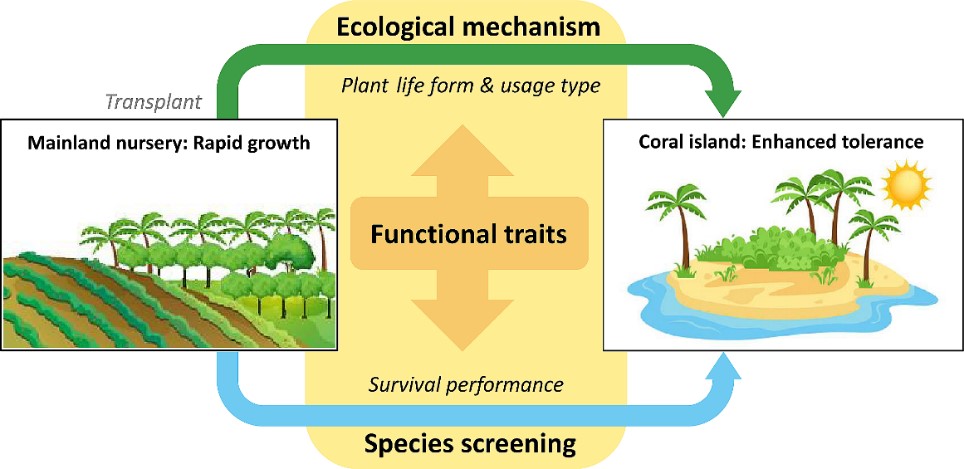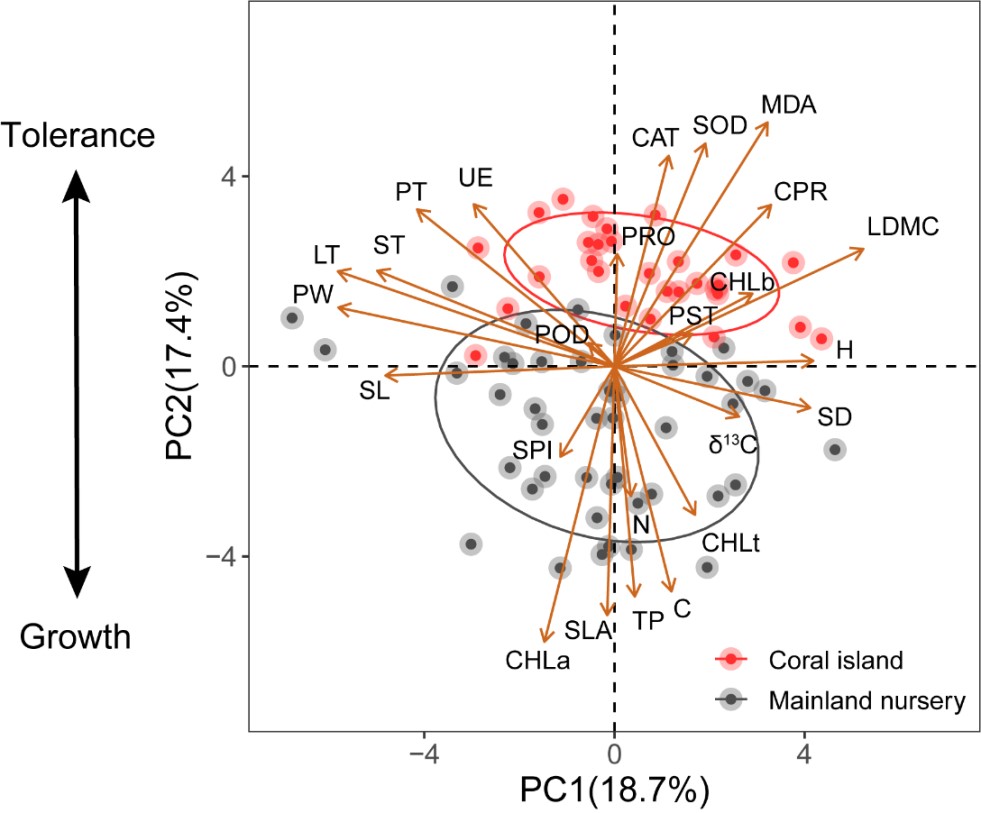
Newsroom
The harsh conditions of coral islands in the South China Sea—like seasonal drought, intense sunlight, strong winds, and high temperatures—challenge plant survival and growth. This highlights the need for careful species selection in vegetation restoration. Over time, plants have developed unique eco-physiological adaptations to cope with these stressors. Therefore, understanding these adaptations and identifying suitable species is crucial for protecting marine resources and preserving the islands' ecological functions.
To address this issue, researchers from the South China Botanical Garden of the Chinese Academy of Sciences conducted a study on 56 typical tropical coastal plant species. Through field measurements and comparative analysis, they examined the differences in structural and physiological traits between plants grown in two distinct habitats: a tropical mainland nursery and tropical coral islands (Fig. 1). The findings revealed that, unlike nursery plants, which adopt an acquisitive strategy in resource-abundant conditions, island plants exhibit stronger leaf structures and higher antioxidant capacities. These traits represent a tolerance strategy that enables them to better withstand environmental stresses (Fig. 2).
Moreover, the study emphasized that plant functional traits, rather than restoration needs or life forms, are more fundamental to understanding species adaptation. Key traits such as leaf thickness, plant height, and the thickness of palisade and spongy tissues were identified as critical factors for screening species suitable for tropical coral island restoration. Based on these findings, the research team identified nine species from the studied pool that are particularly well-suited for restoration efforts.
This study provides new insights into plant adaptation mechanisms and offers practical guidance for restoring tropical coral islands. The findings were published in Journal of Environmental Management, and the research was supported by the National Key Research and Development Program, the National Natural Science Foundation of China, and other funding sources.

Fig. 1. Plant key functional traits in species adaptation and screening for vegetation restoration on coral islands.(Imaged by LIU et al)

Fig. 2. Principal component analysis for 25 functional traits of all 56 species in this study.(Imaged by LIU et al)
